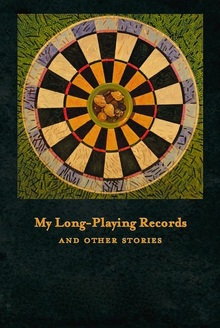A WRITER'S WIT
You must be in tune with the times and prepared to break with tradition.
James Agee
Born November 27, 1909
MLPR—"A Certain Kind of Mischief"

I seldom write stories “about” anything in particular—preferring to allow interesting characters to “create” their own story—but in the case of this one I did have a vague desire to write a story about “bullying.” I cringe every time local or national media publish another feature about a kid being singled out simply because he or she is an easy target (not always gay, sometimes just weak, small, or different in some way). I should have been bullied as a kid—I was skinny, not an athlete, took piano lessons, read five books a week—but for some reason my classmates liked me. Or at least they didn’t pick on me. The result was what mattered.
At first I didn’t know how to go about writing this story, but I was positive I didn’t wish to hit the reader over the head with the topic. I wanted the characters to enact the entire bloody mess, so I turned it over to them. Gave them a setting, a situation. And let them take it from there.
One of these Texas characters, Lenny, has a single father who’s a dentist. He’s a latchkey sixth grader with probably a bit too much freedom, and bit too much stuff. His mother has deserted them to become an artist in New Mexico. Five blocks over in this town of El Centro lives Brad, who’s father has also deserted the family. His mother, a drunk, still manages to work as a temp and as a spammer. On the bus ride home one day from middle school, these two boys strike up an unlikely friendship, if you want to call it that. Brad, an eighth-grader, right away threatens to kill Lenny for no good reason. In their spare time, before their parents arrive home from work, they engage in a number of “mischievous” acts, including harvesting a woman’s credit card number and using it to secure a number of expensive toys from a high end catalog. After they get the hang of it, they also order a stun gun. And . . . as the proverbial rule of writing goes, if a gun appears at the beginning of a story, you know what must happen some time before the end!
Seriously, the “toys” are only a vehicle for demonstrating the bereft nature of these middle-class boys’ lives. Neither one has learned to be a bully in a vacuum, and as you become acquainted with their single parents, you begin to see how, at least in this story, bullying can come about. As with any “issue” of the day, bullying has no simple explanations or solutions. I place it first in the collection because I think it might shake up readers and tease them into reading further. There are more interesting characters to come—each with his or her unique story.
A PASSAGE FROM THE STORY:
"Not long after that, the garage opens, and I groan. My dad turns in the driveway and parks his F-150 in the left-hand stall. Dressed in gray slacks and a new pink tie, his white shirt wrinkled from a hard day of pulling teeth, he comes over and says, “What’s going on, boys?” He’s trying to sound casual, which, of course, makes it seem like he’s about to come unglued. “Yeah, well, I decided the lawn isn’t going to scalp itself.” He disappears into the house, but a whiff of his Eternity remains. A lady he once dated informed him he wore too much of the stuff, and he told me he dropped her like a hot patootie. In a few minutes, he stands at the door in a T-shirt and jeans and calls me inside. God, even after a full day, the cologne seems to envelop him like a cloud. I almost cough" (17).
NEXT TIME: New Yorker Fiction 2014
NEXT THURSDAY: BEHIND THE BOOK—"Ghost Riders"
CATCH UP WITH EARLIER POSTS OF BEHIND THE BOOK:
11/13/14 — Introduction to My Long-Playing Records
11/20/14 — "My Long-Playing Records" — The Story


 RSS Feed
RSS Feed